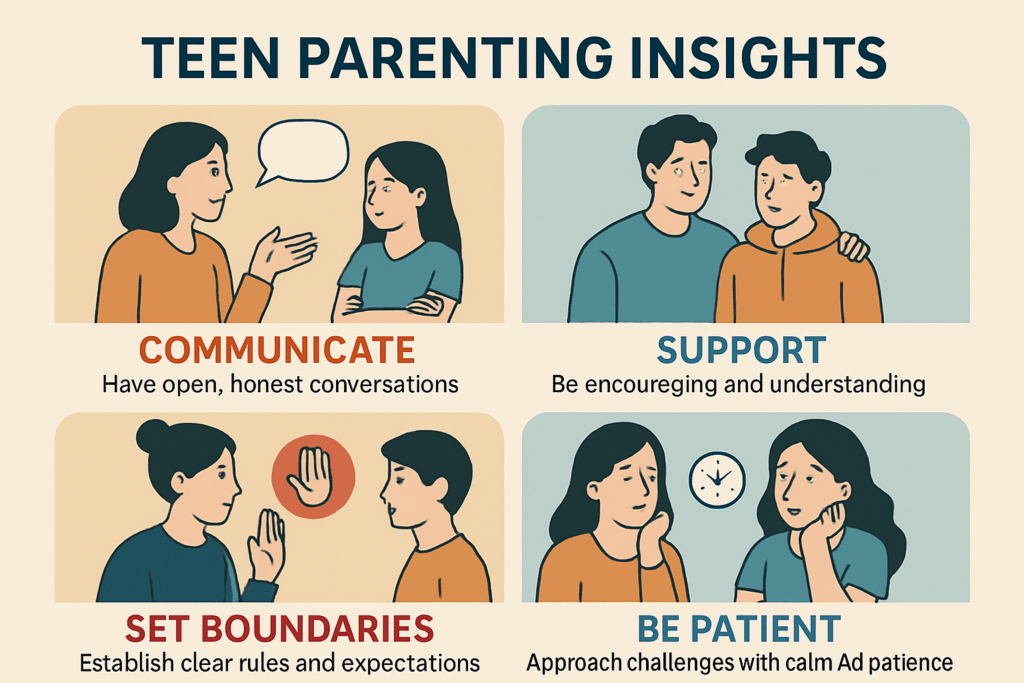Raising a Child with Special Needs: Stories from the Heart
- Open with the uniqueness and realness of parenting a child with special needs.
- Acknowledge that no two journeys are the same, and the learning never really stops.
- Introduce the focus phrase: special needs journeys.
Raising a Child with Special Needs: Stories from the Heart
Let’s start with the truth: raising a child with special needs is unlike anything else. There are no scripts. No one-size-fits-all advice. Every day can surprise you—sometimes in ways you wished for, sometimes in ways you never saw coming. For many parents, what begins as confusion or even fear slowly shifts into something more real: acceptance, resilience, and, yes, even joy you didn’t expect.
No two journeys look the same. You meet other families—at therapy clinics, in online forums, maybe even at the park—and the one thing you share is that your story is unique. There’s always more to learn: new terms, new challenges, new ways to love your child fiercely.
This is what we mean when we talk about special needs journeys. They aren’t about perfection—or always knowing what to do. They’re about showing up, over and over, with hope and honesty. Every milestone, every setback, every “ordinary” day becomes something special, because the path you’re walking is entirely your own. Let’s talk about what that looks like, feels like, and why it matters.
Everyday Triumphs and Real Challenges
Here’s the daily grind of special needs parenting: you drink your coffee in the car because the schedule never stops. One week it’s endless doctor visits, a new diagnosis, or an experimental therapy session that leaves everyone exhausted. The next, you’re spending hours on forms, arguing with insurance, or learning a whole new set of acronyms.
The truth? Some days are completely unpredictable. A meltdown at the grocery store, a fever that means therapy gets canceled. You adapt. You invent. You become an expert in your child when the world feels like it’s written in another language.
Between frustration and love, between laughter and tears, there’s a gritty joy in small victories. A new word. A handshake. A moment of calm. These do not show up on anyone’s highlight reel. But in special needs parenting, they’re huge.
Yes, caring for your child is a full-time, high-stakes job. But here’s the unspoken part: taking care of yourself is just as necessary, and just as hard. Guilt creeps in when you want a break, but you take one anyway because you have to. Rest is part of surviving. So is asking for help, even if you hate it. And in between, you find your rhythm. Some days, it’s a messy dance—but it’s yours, and you keep going.
Insights from Families: What We Learn as We Go
No parent gets a manual, and special needs parenting is about as far from a handbook as you can get. Some days are measured in tiny victories—a solid night’s sleep, a meltdown avoided, or finally getting through a new sensory exercise without tears (theirs or yours). Other days, it feels like you’re barely treading water, watching the rules everyone else seems to follow just not apply.
One mom I spoke with recalled the pride she felt when her son made eye contact for the first time during dinner. It didn’t make the doctor visits less frequent or the paperwork less mind-numbing, but that one moment carried her through a week’s worth of struggle. Another family shared how setbacks taught them to reframe what progress even looked like. Sometimes, a ‘setback’ was just a kid having a bad day—like any other kid.
Navigating special needs parenting also rewrites the script for brothers, sisters, and anyone else living under your roof. Siblings become advocates, sometimes before they even know what that means. Grandparents and aunts get pulled into therapy routines, or school meetings—roles they never imagined, but take on with grit (and humor). Of course, it isn’t always perfect; jealousy flares, patience wears thin, and you improvise more than you’d like to admit.
The truth is, you end up mixing structure with rolling flexibility. One family found homeschooling both a challenge and a blessing, letting learning fit the child instead of the other way around. (If you’re curious how that works out in practice, check out these homeschooling challenges and triumphs.)
What’s common through all these stories isn’t perfection—it’s determination. Families may not always follow mainstream advice, or even each other, but every small shift in routine, every lesson learned, adds up to something meaningful. If there’s one takeaway: you can’t measure your journey against anyone else’s. And that’s not just okay—it’s essential.
Building a World of Support
Let’s be honest—no one can do this alone. Raising and supporting exceptional children takes more than grit; it takes people. Over time, you realize there’s actual power in linking arms with others who get it. Sometimes, the right online group at midnight makes all the difference. Sometimes, it’s a text to a friend, or a kind therapist who doesn’t bat an eye at your questions. Finding your tribe—whether in local meetups, Facebook groups, or parent organizations—creates a safety net that’s less about formal meetings and more about real-life backup.
Supporting exceptional children doesn’t stop at your own front door. Sometimes the best help comes from a neighbor who offers to pick up groceries, or another parent at therapy who shares a story that could be your own. Professionals, teachers, family—everyone has a place in this team effort.
If you’re not sure where to start, here’s the shortcut: ask. Ask your doctor for local resource lists. Join one (not twelve) online group and just observe. Go to an event, even if it’s awkward the first time. Little by little, these connections start to stitch together something strong. Remember—reaching out isn’t a weakness. It’s how community gets built, one honest conversation at a time.
Heartfelt Family Experiences—In Their Own Words
Nothing hits harder or truer than hearing it straight from the source. In the thick of it, heartfelt family experiences sound like late-night worries whispered over a kitchen table and the loud, proud cheers for small victories that feel enormous. It’s the messy, hopeful reality for parents, kids, siblings, and even the grandparents who show up weekend after weekend.
One mom told me about breaking down in the car after a tough IEP meeting, only to get home and see her daughter buttoning her own coat for the first time. That ten seconds of independence was like winning gold. Another family laughed off a disastrous day at the grocery store—everyone staring, their kid stimming at full volume. “We got through it,” the dad said. “And by the next week, half the staff knew our names and saved us a cart.”
There’s a real kind of pride that runs through these stories—like a grandfather practicing sign language so he could talk with his grandson, or a sibling showing off a drawing and bragging, “She made it, all by herself!” That’s the power of these moments: raw, proud, sometimes painful, always real.
What we take from sharing heartfelt family experiences is that everyone’s story matters. Telling these stories and listening without judgment—this is how community actually grows. If you’ve got one, share it. If you haven’t heard any before, lean in. There’s more heart, humor, and (yes) humility out there than you’d ever guess.
Where to Find More Stories and Help
Nobody should feel they’re walking the special needs journeys alone. If you’re looking for support, or maybe just proof that your experience is shared by others, there are places to start. Online communities can bring parents and caregivers together, even when you’re up at 2 A.M. Googling odd side effects or celebrating a breakthrough nobody else quite understands. Local support groups, specialized therapists, and social workers can connect you to resources in your area.
If you crave real-life stories, practical advice, or just the comfort of hearing “me too,” check out spaces designed for sharing. The Child Mind Institute’s special needs parenting stories are a great place for honest accounts from other families. You can read about setbacks, hard-won victories, and plenty of wisdom from the trenches. The more you reach out, the bigger your circle gets—knowledge, strength, and emotional backup all included. Don’t hesitate to explore; sometimes, the help you find is exactly what you needed, even if you didn’t know it a minute ago.
Closing Thoughts
If you take one thing away from these stories, let it be this: every special needs journey is uniquely personal, and every step—no matter how small—counts. There’s no single path or perfect way to do this. What matters is showing up, again and again, with whatever resilience, patience, or stubborn hope you have on hand. It’s messy. Some days feel like milestones, others like slow-motion struggles. But always, there’s heart at the center of it—raw, imperfect, and real. You’re not alone. Every parent, child, and family member is writing their own chapter, and together these stories shape something bigger than any one experience. So keep going. Share when you can, listen when you’re able, and remember: the journey itself is worthy, and so are you.


 Family Activities & Lifestyle Contributor
Family Activities & Lifestyle Contributor
